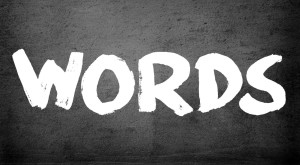By John Egan, Guest Columnist, Egan Energy Communications, Inc.,
www.eganenergy.com
 Stephen Colbert would call it “truthy”– something that comes from the gut, sounds true, feels right, may be accurate — but ultimately has no basis in fact.
Stephen Colbert would call it “truthy”– something that comes from the gut, sounds true, feels right, may be accurate — but ultimately has no basis in fact.
Colbert’s idea about “truthiness” came to mind recently when I came across a list of most persuasive words in the English language. This could be helpful to any communicator.
I want to use these persuasive words to enhance my communications skills. Here are some of them:
- You
- Results
- Health
- Guarantee
- Discover
- Love
- Proven
- Safety
- Save
- New
The list may sound true. But in Colbert’s words, the list is “truthy.” It has no basis in fact. A series of blog posts on
Language Log, operated by the University of Pennsylvania’s Institute for Research in Cognitive Science,
traced the history of this purported list and then convincingly
debunked it.For decades, market researchers have measured people’s responses to ads for soft drinks, cars and presidential candidates.
Those blog posts showed variations of this list have been circulating for more than 50 years. Sometimes the list has 10 words, sometimes 12 and sometimes 16.
But what does this mean to cooperative communicators? Should we stop trying to show members, employees or other stakeholders how something will affect them? When writing copy, are we to downplay “results,” shy away from “savings,” or discard “safety?”
Of course not. These words resonate with your audiences! But before we start drafting copy, we can use these words to help frame the value proposition that makes the service or program relevant to our audience:
- Here’s how this will affect you, specifically
- How much money, time or effort does this new service save?
- What are the results?
- Discover all the ways you are wasting energy!
- How do customers feel about the new program!?
Like carpentry, communications is a craft that blends art, science and experience. The product, and the practitioner, get better with practice. If these 10 influential words are the hammer, saw and screwdriver in your metaphorical toolbox, you will construct better copy.
